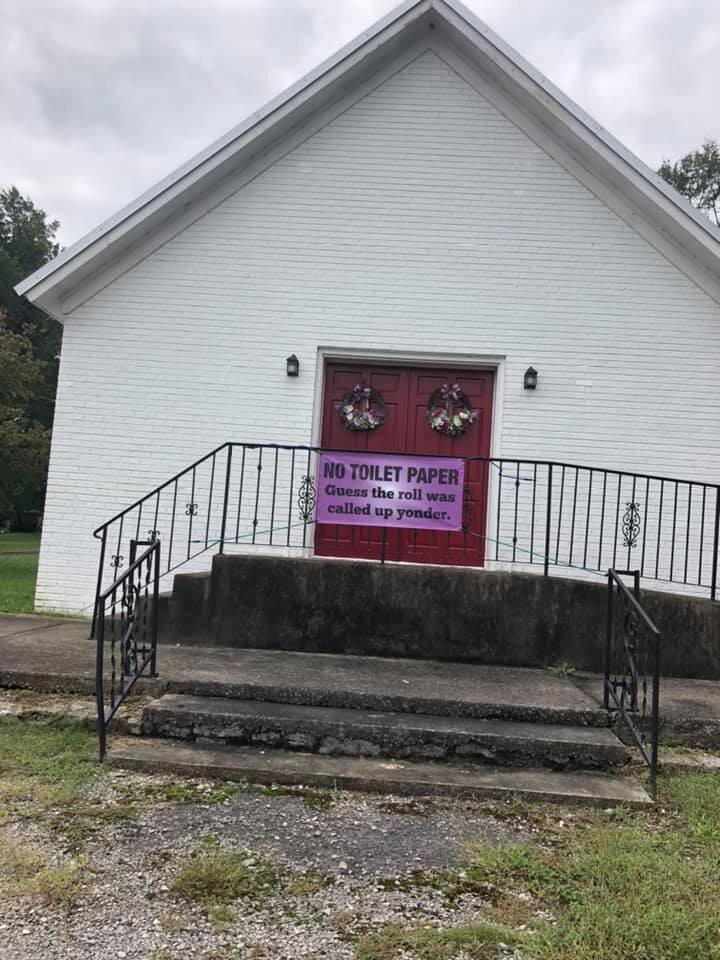Do Christians care what Trump says about them behind closed doors?
Weekend Plug-in 🔌
Editor’s note: Every Friday, “Weekend Plug-in” features analysis, fact checking and top headlines from the world of faith. Got feedback or ideas for this column? Email Bobby Ross Jr. at therossnews@gmail.com.
(ANALYSIS) Every 24-hour news cycle seems to bring a new alleged scandal involving President Donald Trump.
If you believe the headlines, Trump has referred to Americans who died in war as “losers” and “suckers.” He has avoided paying federal taxes.
And he has — according to McKay Coppins, a respected writer for The Atlantic — secretly mocked his Christian supporters.
My question: From a political standpoint, does it matter?
“The president’s alliance with religious conservatives has long been premised on the contention that he takes them seriously, while Democrats hold them in disdain,” Coppins wrote this week. “In speeches and interviews, Trump routinely lavishes praise on conservative Christians, casting himself as their champion.”
But while Trump critics hyperventilate over such stories, voters knew about his propensity to be a jerk before they elected him.
Even in his public statements, the Republican incumbent typically sounds more like a blabbering professional wrestler than a prominent world leader. (Did you catch the debate the other night?)
With all that in mind, I thought Michelle Boorstein, the award-winning religion writer for the Washington Post, had a spot-on response to Coppins’ report.
“What's the evidence that conservative Christians support Trump because of his attitude towards THEM,” Boorstein asked on Twitter, “vs. his willingness to advance his policy priorities?”
“Exactly,” replied John Daniel Davidson, political editor for The Federalist. “Most conservative Christians couldn't care less what Trump thinks about them.”
Which is why, it seems to me, his policies and his nominees for the U.S. Supreme Court (more on that in a moment) matter more to his base than anything he might say.
Power Up: The Week’s Best Reads
1. For conservative Christian women, Amy Coney Barrett’s success is personal: The Supreme Court nominee’s traditional Catholic faith is, as we pointed out last week, a major point of contention.
“Sigh,” tweeted conservative commentator and Never Trumper David French, complaining about an Associated Press story on Barrett’s ties to a charismatic Christian group. “The number of stories that are some version of ‘Gasp! Traditional mainstream Christian appointed to the Supreme Court’ is already too many.”
However, this story by New York Times religion writer Ruth Graham actually reports from the perspective of conservative Christian women. Interestingly, the first woman quoted loves the choice of Barrett but, according to Graham, “has little personal affection for Mr. Trump."
2. Ravi Zacharias’s ministry investigates claims of sexual misconduct at spas: “Journalism is printing what someone else does not want printed,” it’s said. “Everything else is public relations.”
This is a strong piece of journalism by Christianity Today’s Daniel Silliman, exploring claims that the late founder and namesake of Ravi Zacharias International Ministries “sexually harassed multiple massage therapists who worked at two day spas he co-owned.”
In a note to readers, the influential evangelical magazine explained why it reports “bad news about leaders — even after they have passed away.”
3. Can Trump Train raise the silent voices of Amish voters?: This is a fascinating story by Samantha Ickes, a reporter for the Wooster Daily Record in Ohio.
Ickes delves into a push to persuade the Amish — who don’t traditionally vote — to support the president’s re-election bid.
I was particularly intrigued as I wrote a Christian Chronicle trend piece just last week on “modern-day David Lipscombs.” Lipscomb, an influential leader in Churches of Christ from the Civil War until World War I, urged Christians to refrain from voting and participation in civil government.
More Top Reads
• How the coronavirus has reshaped LDS missionaries and members as they find new meaning in a new normal (by Peggy Fletcher Stack, Salt Lake Tribune)
• Trump and Biden court Catholic vote, in very different ways (by Katie Glueck, New York Times)
• Her words: Amy Coney Barrett on faith, precedent, abortion (by The Associated Press)
• Faith leaders say Trump’s refusal to denounce white supremacists will fuel hate, violence (Robert Downen, Houston Chronicle)
• Photos: From memorial to protest, the power of prayer (by The Associated Press)
• Churches hit home run with services in ballparks and stadiums as COVID-19 cancels sports (by Emily McFarlan Miller, RNS)
• Evangelical Biden voters straddle partisan divides (by Kate Shellnutt, Christianity Today)
• Complaints on Trump’s debate performance highlight generational divide among white evangelicals (by Jack Jenkins, RNS)
• Sign language Bible complete after 39 years (by Daniel Silliman, Christianity Today)
Inside The Godbeat: Behind The Bylines
Launched in February 2019, Religion Unplugged already has won awards for its journalistic excellence from Editor & Publisher, the Society of American Business Editors and Writers and, as of last week, the Religion News Association.
Paul Glader, Religion Unplugged’s executive editor, earned the RNA’s Award for Excellence in Religion Reporting — Online-only News Outlets. His first-place entry featured a scoop on a whistleblower alleging a $100 billion secret stockpile by the Church of Jesus Christ of Latter-day Saints. Two related stories — here and here — were included as part of the entry. The same package was honored with third place in the Story of the Year category.
Meanwhile, Liza Vandenboom, a humanities major at The King’s College in New York, received the Chandler Award for Excellence in Student Religion Reporting. Her first-place entry honored stories she wrote for Religion Unplugged:
• How the Jehovah’s Witnesses paved the way for deaf inclusion
• Buddhist influencer Tyler Knott Gregson offers spiritual tools to cope during COVID-19
• Tacos to tote bags: Churches partner with small businesses during COVID-19
Congrats, Paul and Liza!
Charging Station: In Case You Missed It
Here is where you can catch up on recent news and opinions from Religion Unplugged.
• In Uganda, thousands of worshipers return to places of worship (by John Semakula)
• ‘Zoombombing’ lesson: Racist attack on Black church highlights online security concerns (by Bobby Ross Jr.)
• Does college drive young people away from church? (by Ryan Burge)
• Multiple disasters, plus COVID, leave Christian aid ministries strapped for volunteers (by Christina Darnell)
• How student sports ministries are adapting this fall (by Hamil R. Harris)
• Senate should question Amy Coney Barrett about her ties to People Of Praise (by Celia Viggo Wexler)
• New allegations against Ravi Zacharias emerge (by Warren Cole Smith)
• The disappearing religious minority women and girls in Pakistan (by Ewelina U. Ochab)
• India is restoring religious sites in Kashmir, including Hindu temple fled during conflict (by Zaffar Iqbal)
• 'Catholic questions' ahead of the Biden-Trump presidential debate (by Clemente Lisi)
• India's long road to justice from police brutality (by Jennifer Arul)
The Final Plug
Remember the start of of the COVID-19 pandemic when we all rushed to the store and bought all the toilet paper?
Apparently, there’s still a shortage in some places.
“No toilet paper,” the sign says. “Guess the roll was called up yonder.”
My cousin Patty Ball snapped that picture last week at a country church in the Murfreesboro, Tennessee, area.
So, if you plan to attend worship, bring your Bible and a roll of Charmin.
Update: My former Oklahoman colleague Berry Tramel said he loved the picture.
“That's my favorite song,” Tramel said of “When the Roll Is Called Up Yonder.” “It was the song people in a Norman church were signing in autumn 1949, when my dad walked by and was lured in by the music. He became a Christian that night. So far, four generations have been changed by that song.”
Bobby Ross Jr. is a columnist for Religion Unplugged and editor-in-chief of The Christian Chronicle. A former religion writer for The Associated Press and The Oklahoman, Ross has reported from all 50 states and 15 nations. He has covered religion since 1999.


